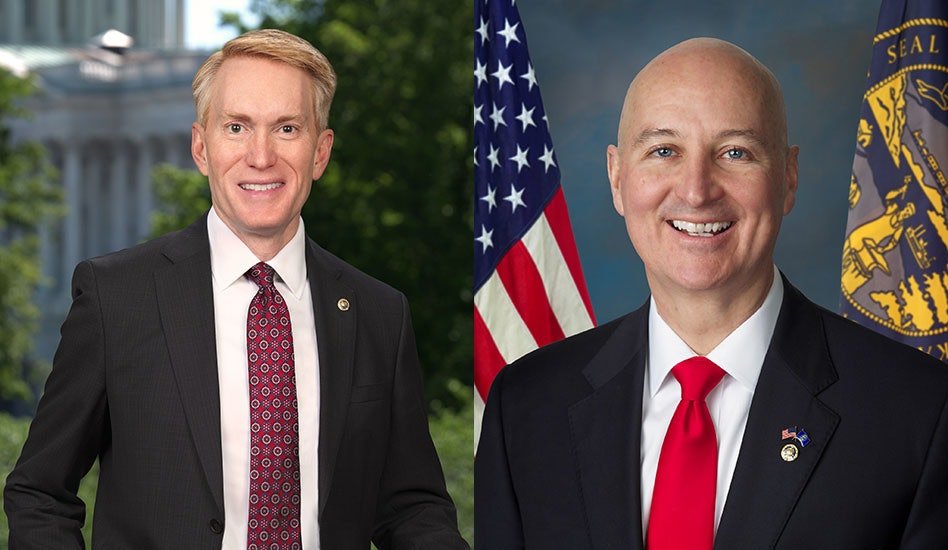On February 7, a pair of Republican U.S. Senators introduced legislation that would prevent cannabis-licensed businesses from deducting their ordinary business costs from taxes, even if it is rescheduled.
Under Section 280E of the Internal Revenue Code, cannabis businesses are unable to deduct these expenses—such as payroll, rent and utilities—from their taxable income because cannabis is a Schedule I drug under the Controlled Substance Act (CSA). Schedule II controlled substances businesses face the same problem.
The burden of paying federal taxes is a significant one for some cannabis businesses in the U.S. They pay over $100 million per year in taxes that would be unavoidable in other industries.
Should cannabis be reclassified as a Schedule III substance—which the U.S. Health and Human Services Department (HHS) recommended, and the Department of Justice (DOJ) proposed under President Joe Biden’s administration—then the 280E tax burden would be eliminated, allowing cannabis companies to operate more sustainably.

U.S. senators are now working to ensure that the DOJ’s proposed rescheduling remains a non-starter due to an interim appeal. James Lankford (R-Oklahoma) and Pete Ricketts (R-Neb.) are working together with the prohibitionist group Smart Approaches to Marijuana to ensure that Section 280E is a hindrance to marijuana businesses regardless of whether rescheduling occurs or not.
On February 6, the Senate filed the bill, “No Deductions for Marijuana Businesses Act.”
Lankford stated in a press release on February 7 that marijuana does not make families stronger or streets safer. It also doesn’t increase productivity at work.
“Businesses who sell federally illegal drugs—including marijuana businesses—shouldn’t get federal tax breaks,” he said. “This bill clarifies federal tax law to make sure a federally illegal product does not have a federally legal tax deduction.”
Since 1982’s Tax Equity and Fiscal Responsibility Act, businesses that deal in Schedule I and II drugs are not allowed to deduct business expenses. Lankford and Ricketts bill extends this tax burden on any company involved with “trafficking” marijuana, even if the substance is listed as Schedule III,IV or V. According to their vision, the only way cannabis companies could avoid 280E would be to remove the entire plant from the CSA.
Kevin Sabet, SAM’s President and CEO claimed that his team had pitched Lankford the idea of the bill last year. He thanked Lankford for taking the initiative.
Sabet, in a press release by Lankford’s Office said that “the federal government should be out of the business giving tax relief to a federally illegal addiction-for profit marijuana industry.” This legislation will prevent the deficit from increasing while also ensuring the taxpayers are not left to pay for tax write offs by people who violate federal laws and poison our children.
Sabet also praised on its social media accounts the intent of the bill to avoid $2.3 Billion in tax cuts for the marijuana industry.
Sabet neglected to mention the fact that most cannabis companies in America aren’t profitable.
In 2024, just 27.3% of U.S. cannabis businesses were profitable, according to Whitney Economics’ U.S. Cannabis Business Conditions Survey report. Comparatively, 65.3% all U.S. small businesses are profitable.
Lankford is not the first to be hostile toward cannabis.
In July of 2024, he, along with U.S. Rep. Pete Sessions R-Texas led a group of 25 GOP members in writing a letter criticizing the DOJ’s rescheduling proposals during a sixty-day period for public comments.
In this letter, the HHS claimed that its recommendation to place Schedule III on the schedule was based “on politics and not science.” In particular, this recommendation came from the HHS, which conducted a medical and scientific evaluation with the U.S. Food and Drug Administration. It determined that marijuana has “currently recognized medical value” and does not belong on Schedule I.
Even so, it is not guaranteed that the federal Government will change the cannabis schedule under the proposed proposal. Especially with the White House changing before the final rule can be released.
John J. Mulrooney (DEA’s chief administrative law Judge) granted the interlocutory appellation and sent it on January 15, just five days before Donald Trump became president.
The Trump Administration announced on Jan. 21 that President Donald Trump had named Derek S. Maltz acting director of the DEA.
Maltz said that Garland’s schedule III was signed by the DOJ in May 2024. The Associated Press It was “clear” to everyone that the DOJ had “hijacked”, or taken over, the DEA’s rescheduling processes. “Politics came before public safety,” the DOJ said.
On February 7, a pair of Republican U.S. Senators introduced legislation that would prevent cannabis-licensed businesses from being able to deduct ordinary business costs from their tax returns, even if it is rescheduled.
Under Section 280E of the Internal Revenue Code, cannabis businesses are unable to deduct these expenses—such as payroll, rent and utilities—from their taxable income because cannabis is a Schedule I drug under the Controlled Substance Act (CSA). Schedule II controlled substances businesses face the same problem.
The burden of paying federal taxes is a significant one for some cannabis businesses in the U.S. They pay over $100 million per year in taxes that would be unavoidable in other industries.

Should cannabis be reclassified as a Schedule III substance—which the U.S. Health and Human Services Department (HHS) recommended, and the Department of Justice (DOJ) proposed under President Joe Biden’s administration—then the 280E tax burden would be eliminated, allowing cannabis companies to operate more sustainably.

U.S. senators are now working to ensure that the DOJ’s proposed rescheduling remains a non-starter due to an interim appeal. James Lankford (R-Oklahoma) and Pete Ricketts (R-Neb.) are working together with the prohibitionist group Smart Approaches to Marijuana to ensure that Section 280E is a hindrance to marijuana businesses regardless of whether rescheduling occurs or not.
On February 6, the Senate filed the bill, “No Deductions for Marijuana Businesses Act.”
Lankford stated in a press release on February 7 that marijuana does not make families stronger or streets safer. It also doesn’t increase productivity at work.
“Businesses who sell federally illegal drugs—including marijuana businesses—shouldn’t get federal tax breaks,” he said. “This bill clarifies federal tax law to make sure a federally illegal product does not have a federally legal tax deduction.”
Tax law prohibits businesses engaged in Schedule I and II drug production from deducting their business expenses. This has been the case since 1982 when Tax Equity and Fiscal Responsibility Act was passed. Lankford and Ricketts’ bill would apply this burden of tax to all companies that are involved in “trafficking cannabis,” regardless of whether marijuana is classified as Schedule IV, V, or III. According to their vision, the only way cannabis companies could avoid 280E would be if the CSA completely deschedules the plant.
Kevin Sabet is the SAM president and CEO. According to him, his team presented the idea of the legislation last year to Lankford and thanked him for his initiative.
Sabet, in a press release by Lankford’s Office said that “the federal government should be out of the business giving tax relief to a federally illegal addiction-for profit marijuana industry.” This legislation will prevent the deficit from increasing while also ensuring the taxpayers are not left to pay for tax write offs by people who violate federal laws and poison our children.
Sabet also praised on its social media accounts the intent of the bill to avoid $2.3 Billion in tax cuts for the marijuana industry.
Sabet neglected to mention the fact that most cannabis companies in America aren’t profitable.
In 2024, just 27.3% of U.S. cannabis businesses were profitable, according to Whitney Economics’ U.S. Cannabis Business Conditions Survey report. In contrast, 65.3% are all U.S. Small Businesses that are profitable.
Lankford is not the first to be hostile toward cannabis.
He and U.S. Rep. Pete Sessions (R-Texas) led a coalition consisting of 25 GOP legislators in July 2024 to send a letter condemning former Attorney General Merrick’s rescheduling plan during a public 60-day comment period.
In this letter, the HHS claimed that its recommendation to place Schedule III on the schedule was “based more on politics than science.” In particular, this recommendation came from the HHS, which conducted a medical and scientific evaluation with the U.S. Food and Drug Administration. It determined that marijuana has “currently acknowledged medical value” and does not belong on Schedule I.
There is still no guarantee the federal government would reschedule marijuana under this proposal. This is especially true with the changing of White House administrations prior to a final ruling.
John J. Mulrooney (DEA’s chief administrative law Judge) granted the interlocutory appellation and sent it on January 15, just five days before Donald Trump became president.
The Trump Administration announced on Jan. 21 that President Donald Trump had named Derek S. Maltz acting director of the DEA.
Maltz said that Garland’s schedule III was signed by the DOJ in May 2024. The Associated Press The DOJ “hijacked the rescheduling from the DEA” and “placed politics over public safety”.
Cannabis Law Resources for Poland
Browse essential legal pages on cannabis sales and cultivation in Poland. You can use these resources to learn about the requirements for certifications, permissions and compliance.
-
Polish News Registration and Interests of Cannabis Businesses
-
Permissions for Cannabis Sales in Poland
-
Authorization for Importing or Manufacturing Medical Products
-
Permission for Manufacturing or Importing Medical Products
-
Certificate of Good Manufacturing Practices (GMP)
-
Registration of Medical Products in Poland




